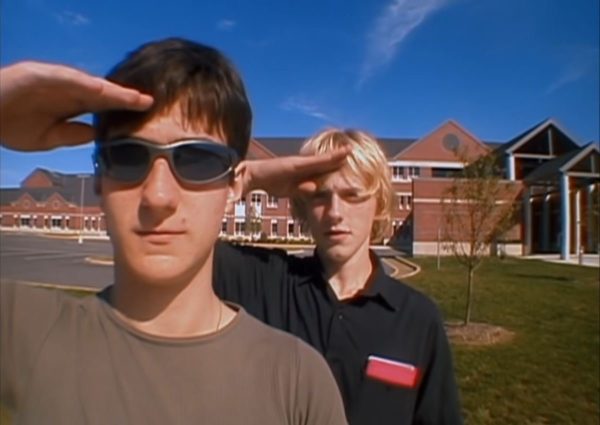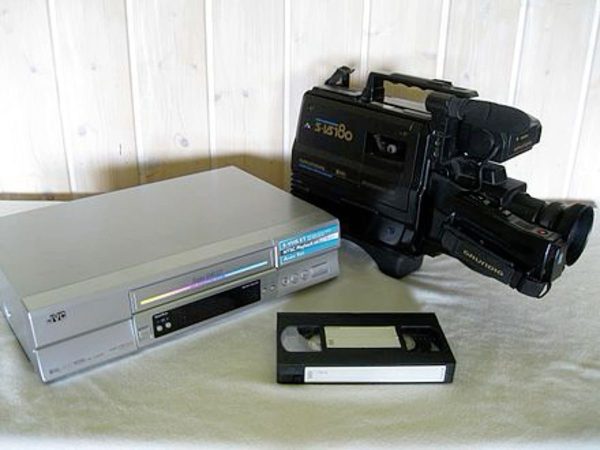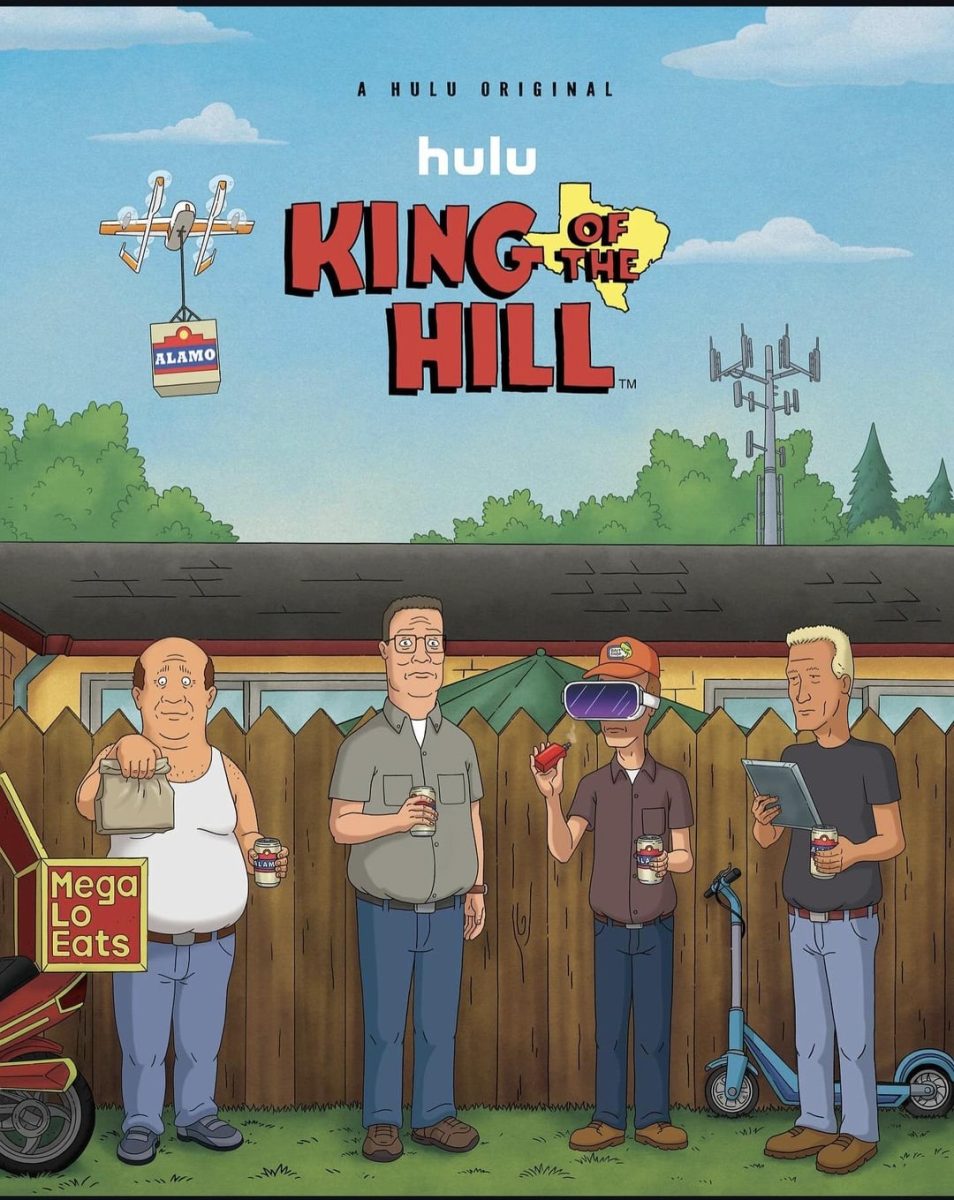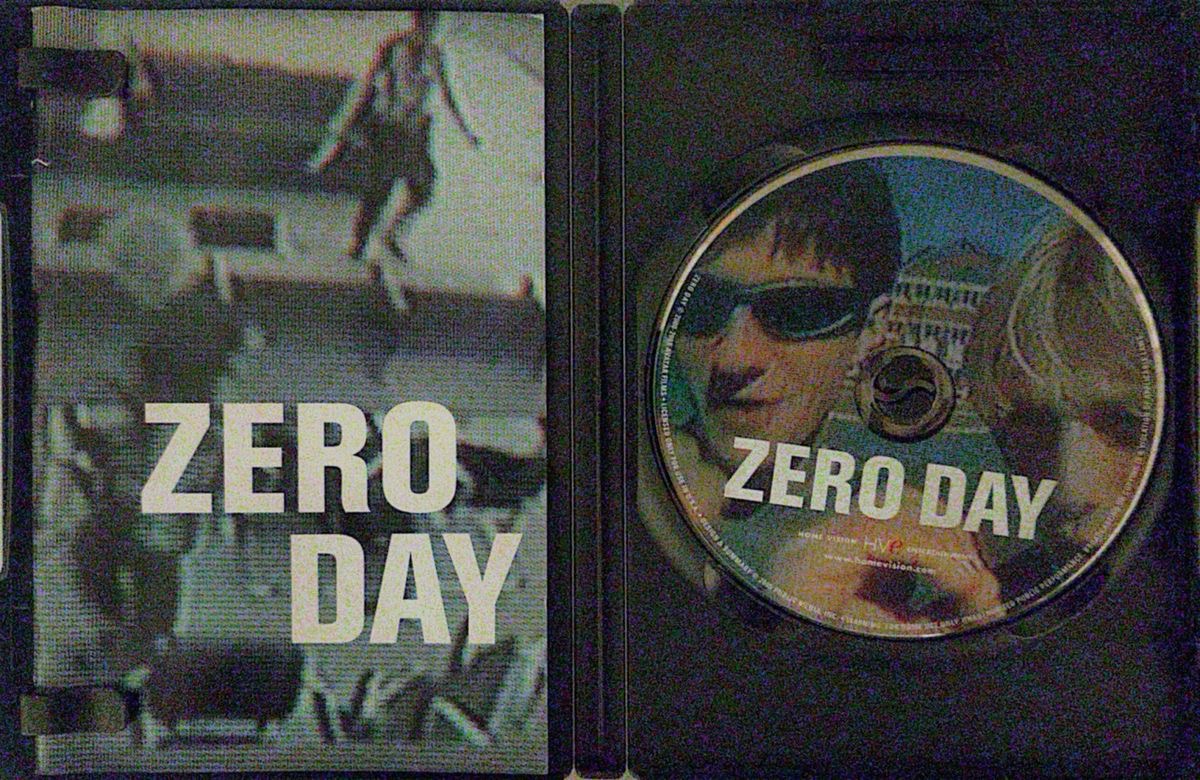Trigger warnings for the movie: Gun violence, Blood, Blasphemy, suicide.
☆—”Zero Day,” is one of my favorite horror movies. A 2003 film directed by Ben Coccio, it offers a stark and unsettling portrayal of two high school students plotting a deadly school shooting. The film draws on the disturbing realities of events like the Columbine massacre, providing a chilling examination of the minds behind such atrocities while exploring the broader implications of violence in American schools.
The Plot
The film is presented in a “found footage” style, giving viewers an intimate, documentary-like glimpse into the lives of Andre Kriegman (played by Andre Keuck) and Cal Gabriel (Cal Robertson), two teenagers who meticulously plan what they call “Zero Day,” the day they intend to carry out a mass shooting at their high school. They call themselves “The Army of Two.” The format, told largely through video diaries recorded by the protagonists, makes their descent into violence feel disturbingly personal and real.
Throughout the film, the two characters discuss their grievances, alienation, and the meticulous preparations for their attack. As the plot unfolds, viewers are given insight into their cold detachment from the world around them and the simmering anger that drives their violent intentions. The movie climaxes with the execution of their plan in a harrowing final act, where the chaos and destruction of a school shooting is portrayed in a stark and unflinching manner.
Drawing from Columbine
While not explicitly based on the Columbine High School shooting, “Zero Day” is heavily influenced by the infamous 1999 tragedy. The film’s portrayal of two alienated young men consumed by rage and preparing for a mass killing echoes the actions of Columbine shooters Eric Harris and Dylan Klebold. In the years following Columbine, the real-world event had a significant cultural impact, sparking numerous debates and reflections on the causes and consequences of school shootings. “Zero Day” can be seen as part of this reflection, examining the psychology of the perpetrators without glamorizing or justifying their actions.
Director Ben Coccio has said that his goal was not to sensationalize school shootings but to confront the horrifying reality of such events. By using the intimate format of handheld cameras and personal video recordings, the film forces viewers to confront the mindset behind the killers and the chilling normalcy that can hide deep-seated violence. 
Themes and Reception
“Zero Day” touches on several key themes that resonate with audiences, especially in light of real-life tragedies:
Alienation and Isolation: The two protagonists express feelings of being outcasts, disconnected from their peers and society. The film explores how these emotions, when left unchecked, can fester into dangerous and destructive actions.
The Role of Media: The “found footage” style raises questions about the role of media in shaping perceptions of violence and how the medium can be used to both humanize and dehumanize individuals. The protagonists’ video diaries provide a window into their lives, blurring the line between observer and participant.
Moral Ambiguity: The film offers no easy answers. While it gives viewers insight into the minds of the killers, it never justifies their actions or offers a clear explanation for their behavior, forcing audiences to confront the complexity of such events.
Upon its release, “Zero Day” received critical acclaim for its bold storytelling and unique approach to a difficult subject matter. It was praised for its realism, especially in its portrayal of the characters’ emotional states and their chilling determination to carry out their plan. The performances of Keuck and Robertson were particularly noted for their authenticity, as both actors delivered unsettling and believable portrayals of the troubled teens.
However, the film also faced criticism from some quarters, with detractors arguing that its unflinching depiction of school violence could be perceived as disturbing or exploitative. Given the sensitive nature of the subject, “Zero Day” walked a fine line, and reactions from audiences were understandably mixed.
Legacy and Continued Relevance
More than two decades after the Columbine shooting and several years after the release of “Zero Day,” the film remains relevant as school shootings continue to be a tragic reality in the United States and around the world. The themes of alienation, access to weapons, and unchecked violence explored in the movie continue to resonate in ongoing conversations about school safety and mental health.
“Zero Day” stands as a sobering reminder of the complexities surrounding school violence, offering viewers a look into the minds of those who commit such acts while challenging them to reflect on how these events can be prevented in real life.
Though difficult to watch, the film’s unvarnished portrayal of this dark subject matter leaves a lasting impact, and for many, it remains a powerful commentary on the lasting legacy of Columbine and other tragic school shootings.
































